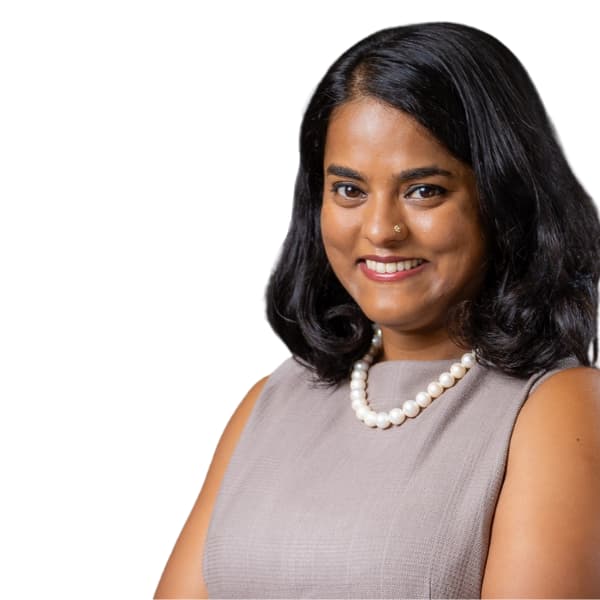How Singapore Emerged as the Top Destination for Indian Family Offices

“Succession planning is becoming increasingly crucial.”
“Succession planning is becoming increasingly crucial.”
“Succession planning is becoming increasingly crucial.”

The growth of Single-Family Offices (SFOs) in Asia has placed Singapore at the center of global wealth planning. Known for its regulatory clarity, tax incentives, and strategic location, the city-state continues to attract families looking to institutionalize their wealth and plan for the long term. Indian-origin families, in particular, are increasingly choosing Singapore, not only for financial reasons but also for its cultural familiarity and quality of life.
To better understand the key drivers behind this trend, as well as the regulatory, legal, and generational considerations involved, we sat down with Nandini Navale, an experienced advisor who has worked closely with global and Indian HNW families on cross-border structuring, MAS licensing, and family office strategy.
Singapore continues to be a magnet for global wealth. What makes it particularly attractive for setting up Single-Family Offices (SFOs), especially for Indian-origin families?
Singapore has indeed become the top choice for Single-Family Offices (SFOs), for global and resident Indians and Indian business families. The most obvious reasons being political stability, a well-developed tax, legal, and regulatory framework, and a financial services sector offering a wide range of varied, bespoke, and sophisticated investment products and wealth management solutions.
Singapore's strategic location as a gateway to Asian markets opens solid investment opportunities in rapidly growing economies, allowing families to diversify their portfolios effectively. With a focus on innovation and technology, there are plenty of cutting-edge investment opportunities, especially in sectors like fintech and biotech, both locally and regionally.
Particularly, for Indian-origin families, there’s a strong cultural connection. The vibrant Indian community here makes it feel like home, with familiar festivals & cuisine, community, and supportive networks that help with integration.
The quality of life in Singapore is another big draw, with safety and excellent healthcare making it a great place to live.
And let’s not forget about education - Singapore is home to world-class institutions.
With its proximity to India, Singapore really stands out as the ideal location for Indian-origin families looking to establish and manage their Single-Family Offices, blending financial benefits with a welcoming community and lifestyle.
Given your deep work with Indian HNW families, what are the biggest legal and structural challenges when migrating wealth from India into an SFO framework in Singapore?
One of the primary challenges is navigating the Foreign Exchange Management Act (FEMA) and regulatory restrictions in India, particularly in terms of foreign exchange laws, outward remittance of funds, which could complicate the process of moving funds and people abroad. Families must ensure compliance with these regulations to avoid penalties and negative publicity.
Tax implications also play a crucial role in this migration process. Indian families need to consider the tax liabilities associated with transferring assets, including potential capital gains tax and wealth tax. Additionally, understanding the tax treaties between India and Singapore is essential to optimize tax efficiency and avoid double taxation.
Structurally, establishing an SFO in Singapore requires careful planning and cross-border implications. Families must decide on the appropriate structure for their SFO, whether it be a private limited company, a trust, or another entity type. Each structure has its own legal implications, governance requirements, and compliance obligations that must be thoroughly understood.
Another challenge is ensuring that the governance framework of the SFO aligns with the family's values and objectives. This includes Singapore substance and having the right persons on the ground in Singapore - defining roles and responsibilities, establishing a clear investment strategy, and implementing robust compliance and risk management processes.
Lastly, there may be emotional and familial dynamics at play, as wealth migration often involves multiple family members with differing views on investment strategies and governance. Addressing these dynamics through effective communication and planning is vital to ensure a smooth transition.
Overall, while the migration of wealth from India to an SFO framework in Singapore presents opportunities, it also requires careful navigation of legal, tax, and structural challenges to ensure a successful outcome.
What are the most significant tax benefits available in Singapore to SFOs?
There are more than 2000 SFOs in Singapore today, and over a period of time, the tax environment has developed as well. The 13U and 13O tax incentives in Singapore provide significant tax concessions aimed at attracting fund managers and SFOs. The 13U scheme offers a 10% concessionary tax rate on qualifying income, allowing fund managers to enhance returns while minimizing tax liabilities. Meanwhile, the 13O scheme grants tax exemptions for qualifying offshore funds, enabling single-family offices to manage investments without local taxes on offshore income.
Additionally, Singapore offers favorable tax treatment on multiple counts – capital gains and dividend income are typically tax-free for both individuals and companies; interest income earned by individuals is tax-exempt too, estate duty exemptions, philanthropy tax incentives, and various concessions and grants, thereby enhancing investment appeal and shareholder returns.
Together, these incentives create a dynamic investment environment for setting up a Family office here.
You’ve advised on MAS licensing and fund formation for asset managers. How has regulatory scrutiny evolved in Singapore, and what should new entrants be most mindful of?
I've been closely involved with the Monetary Authority of Singapore (MAS) for over a decade, and I've witnessed a significant transformation in their approach.
Regulatory scrutiny has certainly intensified. The regulators are conducting a much more detailed and meticulous review of applications, with a strong focus on KYC (Know Your Customer) and AML (Anti-Money Laundering). They are looking into the track record of professionals, the investment policy and focus, and plans for building a robust and professional team. Substance in Singapore, business plans, implementation strategy, governance, and compliance are all factors under the spotlight. For new entrants, it’s crucial to be mindful of these evolving expectations. Ensuring that your application is thorough and well-prepared can make a significant difference in speeding approvals and navigating this more rigorous regulatory landscape.
With the growing emphasis on transparency and global tax compliance, how do you balance confidentiality with regulatory obligations when structuring cross-border assets?
Balancing confidentiality with regulatory obligations in cross-border transactions is a nuanced challenge. While clients value privacy, the emphasis on transparency and compliance with global tax regulations is crucial. I would prioritize open communication to help clients understand the importance of compliance while safeguarding their sensitive information through robust confidentiality and security measures. Of course, information is always to be shared on a need-to-know basis, ensuring that only those directly involved in the process have access to pertinent details. This approach not only protects client confidentiality but also streamlines communication, allowing for more efficient decision-making while maintaining compliance. Ultimately, it’s all about fostering trust that allows clients to feel secure in sharing their information, knowing we are committed to both their privacy and legal compliance.
Estate and succession planning are becoming urgent priorities in Asia. What mistakes do you most commonly see families make—and how can they be avoided?
Estate and succession planning are becoming increasingly crucial conversations given the imminent great global inter-generational wealth transfer. In many Asian cultures, discussing wealth, inheritance, and family dynamics can be considered taboo. There is often a strong emphasis on filial piety and respect for elders in Asian cultures. Younger generations may feel hesitant to broach sensitive topics
Families must create comprehensive succession and legacy plans covering asset preservation, distribution, and governance to reduce the likelihood of family disputes. Documenting wishes clearly, appointing trusted family counsels, trustees, and guardians for minors are all points to consider. This is probably where the role of an independent, trusted advisor and non-family member takes prominence.
Another frequent oversight is neglecting tax implications, which can reduce the estate's value during asset transfer. Early tax planning can help mitigate these liabilities. Lastly, lack of communication among family members can create misunderstandings; regular discussions about the estate plan can foster unity and clarity. By addressing these issues, families can navigate estate planning more effectively.
You speak often about the importance of integrated advisory. How does bringing philanthropy and legacy planning into the same conversation as tax and compliance shift the outcome for a family?
The role of the Integrated Advisor (IA) or the Expert Generalist, as folks in the SFO circles often refer to, is gaining prominence. The IA fosters collaboration among various specialists, ensuring that all aspects of a family's financial and values landscape are aligned. This coordination should lead to more informed decision-making and cohesive plans that address both immediate needs and long-term objectives. One cannot undermine the interconnectedness of financial decisions to ensure that wealth management aligns with their unique traditions, values, and creates a meaningful impact. The IA plays a crucial role in drawing attention to a holistic approach – one that addresses family legacy and values by bringing together philanthropy, legacy planning, tax, and compliance discussions.
An integrated advisor can also facilitate conversations that bridge these areas, helping families understand how charitable giving can provide tax benefits while also fulfilling their philanthropic aspirations. By considering legacy planning alongside tax implications, families can create a comprehensive strategy that not only preserves wealth but also reflects their core values for future generations. This comprehensive approach ultimately strengthens family legacies and enhances their overall financial well-being.
As younger generations inherit family wealth, how are you seeing conversations around governance and purpose evolve in your work with SFOs?
As younger generations step into their roles as stewards of family wealth, the conversations around purpose, legacy, and governance are really starting to shift. These heirs are all about transparency and inclusivity, pushing for open dialogues about financial decisions and family values, which helps everyone feel more connected and responsible.
We’re also seeing a strong move towards purpose-driven investing. It’s refreshing to see younger family members keen on considering environmental, social, and governance (ESG) factors in their investment choices, prompting families to rethink how their portfolios align with their long-term vision.
Plus, technology is playing a big role in this evolution. Families are being influenced by the young ones to use digital tools to enhance communication and collaboration and governance, regulatory compliance, and transparency. Overall, this shift reflects a growing trend of integrating values with wealth management, ensuring that family legacies are not just preserved but truly thrive for future generations.
If you had to give one piece of advice to a next-gen family principal setting up their first family office, what would it be - and what should they absolutely avoid?
My key piece of advice for a next-gen family principal setting up their first family office is to prioritize a clear vision and purpose from the start. Defining your goals - whether it's wealth preservation, succession and asset transfer, insurance, investment strategy, or upholding family values - will guide your strategies and decisions. Involve family members in this process to foster unity and alignment. Taking the time to build a solid foundation and seek expert advice will ensure your family office effectively reflects your family's goals and values.

About the Author
Nandini Navale is a Partner in the Wealth & Asset Management practice at EY, Singapore. Nandini is a lawyer and certified Family Office, Philanthropy, and Compliance professional with extensive experience in the Private Equity and Private Wealth sectors. Nandini serves as an advisor to asset managers on MAS licenses, fund formation, regulatory reporting, and compliance. She specializes in assisting high-net-worth families in establishing single-family offices (SFOs) in Singapore, navigating structural and regulatory landscapes both onshore and offshore, particularly in India. As an Integrated Advisor, she manages the entire SFO lifecycle, focusing on wealth structuring, preservation, succession, estate & legacy planning, and philanthropy. She is a champion and advocate for Diversity, Equity, and Inclusion (DEI), showcasing her commitment through active engagement throughout her career.
The growth of Single-Family Offices (SFOs) in Asia has placed Singapore at the center of global wealth planning. Known for its regulatory clarity, tax incentives, and strategic location, the city-state continues to attract families looking to institutionalize their wealth and plan for the long term. Indian-origin families, in particular, are increasingly choosing Singapore, not only for financial reasons but also for its cultural familiarity and quality of life.
To better understand the key drivers behind this trend, as well as the regulatory, legal, and generational considerations involved, we sat down with Nandini Navale, an experienced advisor who has worked closely with global and Indian HNW families on cross-border structuring, MAS licensing, and family office strategy.
Singapore continues to be a magnet for global wealth. What makes it particularly attractive for setting up Single-Family Offices (SFOs), especially for Indian-origin families?
Singapore has indeed become the top choice for Single-Family Offices (SFOs), for global and resident Indians and Indian business families. The most obvious reasons being political stability, a well-developed tax, legal, and regulatory framework, and a financial services sector offering a wide range of varied, bespoke, and sophisticated investment products and wealth management solutions.
Singapore's strategic location as a gateway to Asian markets opens solid investment opportunities in rapidly growing economies, allowing families to diversify their portfolios effectively. With a focus on innovation and technology, there are plenty of cutting-edge investment opportunities, especially in sectors like fintech and biotech, both locally and regionally.
Particularly, for Indian-origin families, there’s a strong cultural connection. The vibrant Indian community here makes it feel like home, with familiar festivals & cuisine, community, and supportive networks that help with integration.
The quality of life in Singapore is another big draw, with safety and excellent healthcare making it a great place to live.
And let’s not forget about education - Singapore is home to world-class institutions.
With its proximity to India, Singapore really stands out as the ideal location for Indian-origin families looking to establish and manage their Single-Family Offices, blending financial benefits with a welcoming community and lifestyle.
Given your deep work with Indian HNW families, what are the biggest legal and structural challenges when migrating wealth from India into an SFO framework in Singapore?
One of the primary challenges is navigating the Foreign Exchange Management Act (FEMA) and regulatory restrictions in India, particularly in terms of foreign exchange laws, outward remittance of funds, which could complicate the process of moving funds and people abroad. Families must ensure compliance with these regulations to avoid penalties and negative publicity.
Tax implications also play a crucial role in this migration process. Indian families need to consider the tax liabilities associated with transferring assets, including potential capital gains tax and wealth tax. Additionally, understanding the tax treaties between India and Singapore is essential to optimize tax efficiency and avoid double taxation.
Structurally, establishing an SFO in Singapore requires careful planning and cross-border implications. Families must decide on the appropriate structure for their SFO, whether it be a private limited company, a trust, or another entity type. Each structure has its own legal implications, governance requirements, and compliance obligations that must be thoroughly understood.
Another challenge is ensuring that the governance framework of the SFO aligns with the family's values and objectives. This includes Singapore substance and having the right persons on the ground in Singapore - defining roles and responsibilities, establishing a clear investment strategy, and implementing robust compliance and risk management processes.
Lastly, there may be emotional and familial dynamics at play, as wealth migration often involves multiple family members with differing views on investment strategies and governance. Addressing these dynamics through effective communication and planning is vital to ensure a smooth transition.
Overall, while the migration of wealth from India to an SFO framework in Singapore presents opportunities, it also requires careful navigation of legal, tax, and structural challenges to ensure a successful outcome.
What are the most significant tax benefits available in Singapore to SFOs?
There are more than 2000 SFOs in Singapore today, and over a period of time, the tax environment has developed as well. The 13U and 13O tax incentives in Singapore provide significant tax concessions aimed at attracting fund managers and SFOs. The 13U scheme offers a 10% concessionary tax rate on qualifying income, allowing fund managers to enhance returns while minimizing tax liabilities. Meanwhile, the 13O scheme grants tax exemptions for qualifying offshore funds, enabling single-family offices to manage investments without local taxes on offshore income.
Additionally, Singapore offers favorable tax treatment on multiple counts – capital gains and dividend income are typically tax-free for both individuals and companies; interest income earned by individuals is tax-exempt too, estate duty exemptions, philanthropy tax incentives, and various concessions and grants, thereby enhancing investment appeal and shareholder returns.
Together, these incentives create a dynamic investment environment for setting up a Family office here.
You’ve advised on MAS licensing and fund formation for asset managers. How has regulatory scrutiny evolved in Singapore, and what should new entrants be most mindful of?
I've been closely involved with the Monetary Authority of Singapore (MAS) for over a decade, and I've witnessed a significant transformation in their approach.
Regulatory scrutiny has certainly intensified. The regulators are conducting a much more detailed and meticulous review of applications, with a strong focus on KYC (Know Your Customer) and AML (Anti-Money Laundering). They are looking into the track record of professionals, the investment policy and focus, and plans for building a robust and professional team. Substance in Singapore, business plans, implementation strategy, governance, and compliance are all factors under the spotlight. For new entrants, it’s crucial to be mindful of these evolving expectations. Ensuring that your application is thorough and well-prepared can make a significant difference in speeding approvals and navigating this more rigorous regulatory landscape.
With the growing emphasis on transparency and global tax compliance, how do you balance confidentiality with regulatory obligations when structuring cross-border assets?
Balancing confidentiality with regulatory obligations in cross-border transactions is a nuanced challenge. While clients value privacy, the emphasis on transparency and compliance with global tax regulations is crucial. I would prioritize open communication to help clients understand the importance of compliance while safeguarding their sensitive information through robust confidentiality and security measures. Of course, information is always to be shared on a need-to-know basis, ensuring that only those directly involved in the process have access to pertinent details. This approach not only protects client confidentiality but also streamlines communication, allowing for more efficient decision-making while maintaining compliance. Ultimately, it’s all about fostering trust that allows clients to feel secure in sharing their information, knowing we are committed to both their privacy and legal compliance.
Estate and succession planning are becoming urgent priorities in Asia. What mistakes do you most commonly see families make—and how can they be avoided?
Estate and succession planning are becoming increasingly crucial conversations given the imminent great global inter-generational wealth transfer. In many Asian cultures, discussing wealth, inheritance, and family dynamics can be considered taboo. There is often a strong emphasis on filial piety and respect for elders in Asian cultures. Younger generations may feel hesitant to broach sensitive topics
Families must create comprehensive succession and legacy plans covering asset preservation, distribution, and governance to reduce the likelihood of family disputes. Documenting wishes clearly, appointing trusted family counsels, trustees, and guardians for minors are all points to consider. This is probably where the role of an independent, trusted advisor and non-family member takes prominence.
Another frequent oversight is neglecting tax implications, which can reduce the estate's value during asset transfer. Early tax planning can help mitigate these liabilities. Lastly, lack of communication among family members can create misunderstandings; regular discussions about the estate plan can foster unity and clarity. By addressing these issues, families can navigate estate planning more effectively.
You speak often about the importance of integrated advisory. How does bringing philanthropy and legacy planning into the same conversation as tax and compliance shift the outcome for a family?
The role of the Integrated Advisor (IA) or the Expert Generalist, as folks in the SFO circles often refer to, is gaining prominence. The IA fosters collaboration among various specialists, ensuring that all aspects of a family's financial and values landscape are aligned. This coordination should lead to more informed decision-making and cohesive plans that address both immediate needs and long-term objectives. One cannot undermine the interconnectedness of financial decisions to ensure that wealth management aligns with their unique traditions, values, and creates a meaningful impact. The IA plays a crucial role in drawing attention to a holistic approach – one that addresses family legacy and values by bringing together philanthropy, legacy planning, tax, and compliance discussions.
An integrated advisor can also facilitate conversations that bridge these areas, helping families understand how charitable giving can provide tax benefits while also fulfilling their philanthropic aspirations. By considering legacy planning alongside tax implications, families can create a comprehensive strategy that not only preserves wealth but also reflects their core values for future generations. This comprehensive approach ultimately strengthens family legacies and enhances their overall financial well-being.
As younger generations inherit family wealth, how are you seeing conversations around governance and purpose evolve in your work with SFOs?
As younger generations step into their roles as stewards of family wealth, the conversations around purpose, legacy, and governance are really starting to shift. These heirs are all about transparency and inclusivity, pushing for open dialogues about financial decisions and family values, which helps everyone feel more connected and responsible.
We’re also seeing a strong move towards purpose-driven investing. It’s refreshing to see younger family members keen on considering environmental, social, and governance (ESG) factors in their investment choices, prompting families to rethink how their portfolios align with their long-term vision.
Plus, technology is playing a big role in this evolution. Families are being influenced by the young ones to use digital tools to enhance communication and collaboration and governance, regulatory compliance, and transparency. Overall, this shift reflects a growing trend of integrating values with wealth management, ensuring that family legacies are not just preserved but truly thrive for future generations.
If you had to give one piece of advice to a next-gen family principal setting up their first family office, what would it be - and what should they absolutely avoid?
My key piece of advice for a next-gen family principal setting up their first family office is to prioritize a clear vision and purpose from the start. Defining your goals - whether it's wealth preservation, succession and asset transfer, insurance, investment strategy, or upholding family values - will guide your strategies and decisions. Involve family members in this process to foster unity and alignment. Taking the time to build a solid foundation and seek expert advice will ensure your family office effectively reflects your family's goals and values.

About the Author
Nandini Navale is a Partner in the Wealth & Asset Management practice at EY, Singapore. Nandini is a lawyer and certified Family Office, Philanthropy, and Compliance professional with extensive experience in the Private Equity and Private Wealth sectors. Nandini serves as an advisor to asset managers on MAS licenses, fund formation, regulatory reporting, and compliance. She specializes in assisting high-net-worth families in establishing single-family offices (SFOs) in Singapore, navigating structural and regulatory landscapes both onshore and offshore, particularly in India. As an Integrated Advisor, she manages the entire SFO lifecycle, focusing on wealth structuring, preservation, succession, estate & legacy planning, and philanthropy. She is a champion and advocate for Diversity, Equity, and Inclusion (DEI), showcasing her commitment through active engagement throughout her career.
The growth of Single-Family Offices (SFOs) in Asia has placed Singapore at the center of global wealth planning. Known for its regulatory clarity, tax incentives, and strategic location, the city-state continues to attract families looking to institutionalize their wealth and plan for the long term. Indian-origin families, in particular, are increasingly choosing Singapore, not only for financial reasons but also for its cultural familiarity and quality of life.
To better understand the key drivers behind this trend, as well as the regulatory, legal, and generational considerations involved, we sat down with Nandini Navale, an experienced advisor who has worked closely with global and Indian HNW families on cross-border structuring, MAS licensing, and family office strategy.
Singapore continues to be a magnet for global wealth. What makes it particularly attractive for setting up Single-Family Offices (SFOs), especially for Indian-origin families?
Singapore has indeed become the top choice for Single-Family Offices (SFOs), for global and resident Indians and Indian business families. The most obvious reasons being political stability, a well-developed tax, legal, and regulatory framework, and a financial services sector offering a wide range of varied, bespoke, and sophisticated investment products and wealth management solutions.
Singapore's strategic location as a gateway to Asian markets opens solid investment opportunities in rapidly growing economies, allowing families to diversify their portfolios effectively. With a focus on innovation and technology, there are plenty of cutting-edge investment opportunities, especially in sectors like fintech and biotech, both locally and regionally.
Particularly, for Indian-origin families, there’s a strong cultural connection. The vibrant Indian community here makes it feel like home, with familiar festivals & cuisine, community, and supportive networks that help with integration.
The quality of life in Singapore is another big draw, with safety and excellent healthcare making it a great place to live.
And let’s not forget about education - Singapore is home to world-class institutions.
With its proximity to India, Singapore really stands out as the ideal location for Indian-origin families looking to establish and manage their Single-Family Offices, blending financial benefits with a welcoming community and lifestyle.
Given your deep work with Indian HNW families, what are the biggest legal and structural challenges when migrating wealth from India into an SFO framework in Singapore?
One of the primary challenges is navigating the Foreign Exchange Management Act (FEMA) and regulatory restrictions in India, particularly in terms of foreign exchange laws, outward remittance of funds, which could complicate the process of moving funds and people abroad. Families must ensure compliance with these regulations to avoid penalties and negative publicity.
Tax implications also play a crucial role in this migration process. Indian families need to consider the tax liabilities associated with transferring assets, including potential capital gains tax and wealth tax. Additionally, understanding the tax treaties between India and Singapore is essential to optimize tax efficiency and avoid double taxation.
Structurally, establishing an SFO in Singapore requires careful planning and cross-border implications. Families must decide on the appropriate structure for their SFO, whether it be a private limited company, a trust, or another entity type. Each structure has its own legal implications, governance requirements, and compliance obligations that must be thoroughly understood.
Another challenge is ensuring that the governance framework of the SFO aligns with the family's values and objectives. This includes Singapore substance and having the right persons on the ground in Singapore - defining roles and responsibilities, establishing a clear investment strategy, and implementing robust compliance and risk management processes.
Lastly, there may be emotional and familial dynamics at play, as wealth migration often involves multiple family members with differing views on investment strategies and governance. Addressing these dynamics through effective communication and planning is vital to ensure a smooth transition.
Overall, while the migration of wealth from India to an SFO framework in Singapore presents opportunities, it also requires careful navigation of legal, tax, and structural challenges to ensure a successful outcome.
What are the most significant tax benefits available in Singapore to SFOs?
There are more than 2000 SFOs in Singapore today, and over a period of time, the tax environment has developed as well. The 13U and 13O tax incentives in Singapore provide significant tax concessions aimed at attracting fund managers and SFOs. The 13U scheme offers a 10% concessionary tax rate on qualifying income, allowing fund managers to enhance returns while minimizing tax liabilities. Meanwhile, the 13O scheme grants tax exemptions for qualifying offshore funds, enabling single-family offices to manage investments without local taxes on offshore income.
Additionally, Singapore offers favorable tax treatment on multiple counts – capital gains and dividend income are typically tax-free for both individuals and companies; interest income earned by individuals is tax-exempt too, estate duty exemptions, philanthropy tax incentives, and various concessions and grants, thereby enhancing investment appeal and shareholder returns.
Together, these incentives create a dynamic investment environment for setting up a Family office here.
You’ve advised on MAS licensing and fund formation for asset managers. How has regulatory scrutiny evolved in Singapore, and what should new entrants be most mindful of?
I've been closely involved with the Monetary Authority of Singapore (MAS) for over a decade, and I've witnessed a significant transformation in their approach.
Regulatory scrutiny has certainly intensified. The regulators are conducting a much more detailed and meticulous review of applications, with a strong focus on KYC (Know Your Customer) and AML (Anti-Money Laundering). They are looking into the track record of professionals, the investment policy and focus, and plans for building a robust and professional team. Substance in Singapore, business plans, implementation strategy, governance, and compliance are all factors under the spotlight. For new entrants, it’s crucial to be mindful of these evolving expectations. Ensuring that your application is thorough and well-prepared can make a significant difference in speeding approvals and navigating this more rigorous regulatory landscape.
With the growing emphasis on transparency and global tax compliance, how do you balance confidentiality with regulatory obligations when structuring cross-border assets?
Balancing confidentiality with regulatory obligations in cross-border transactions is a nuanced challenge. While clients value privacy, the emphasis on transparency and compliance with global tax regulations is crucial. I would prioritize open communication to help clients understand the importance of compliance while safeguarding their sensitive information through robust confidentiality and security measures. Of course, information is always to be shared on a need-to-know basis, ensuring that only those directly involved in the process have access to pertinent details. This approach not only protects client confidentiality but also streamlines communication, allowing for more efficient decision-making while maintaining compliance. Ultimately, it’s all about fostering trust that allows clients to feel secure in sharing their information, knowing we are committed to both their privacy and legal compliance.
Estate and succession planning are becoming urgent priorities in Asia. What mistakes do you most commonly see families make—and how can they be avoided?
Estate and succession planning are becoming increasingly crucial conversations given the imminent great global inter-generational wealth transfer. In many Asian cultures, discussing wealth, inheritance, and family dynamics can be considered taboo. There is often a strong emphasis on filial piety and respect for elders in Asian cultures. Younger generations may feel hesitant to broach sensitive topics
Families must create comprehensive succession and legacy plans covering asset preservation, distribution, and governance to reduce the likelihood of family disputes. Documenting wishes clearly, appointing trusted family counsels, trustees, and guardians for minors are all points to consider. This is probably where the role of an independent, trusted advisor and non-family member takes prominence.
Another frequent oversight is neglecting tax implications, which can reduce the estate's value during asset transfer. Early tax planning can help mitigate these liabilities. Lastly, lack of communication among family members can create misunderstandings; regular discussions about the estate plan can foster unity and clarity. By addressing these issues, families can navigate estate planning more effectively.
You speak often about the importance of integrated advisory. How does bringing philanthropy and legacy planning into the same conversation as tax and compliance shift the outcome for a family?
The role of the Integrated Advisor (IA) or the Expert Generalist, as folks in the SFO circles often refer to, is gaining prominence. The IA fosters collaboration among various specialists, ensuring that all aspects of a family's financial and values landscape are aligned. This coordination should lead to more informed decision-making and cohesive plans that address both immediate needs and long-term objectives. One cannot undermine the interconnectedness of financial decisions to ensure that wealth management aligns with their unique traditions, values, and creates a meaningful impact. The IA plays a crucial role in drawing attention to a holistic approach – one that addresses family legacy and values by bringing together philanthropy, legacy planning, tax, and compliance discussions.
An integrated advisor can also facilitate conversations that bridge these areas, helping families understand how charitable giving can provide tax benefits while also fulfilling their philanthropic aspirations. By considering legacy planning alongside tax implications, families can create a comprehensive strategy that not only preserves wealth but also reflects their core values for future generations. This comprehensive approach ultimately strengthens family legacies and enhances their overall financial well-being.
As younger generations inherit family wealth, how are you seeing conversations around governance and purpose evolve in your work with SFOs?
As younger generations step into their roles as stewards of family wealth, the conversations around purpose, legacy, and governance are really starting to shift. These heirs are all about transparency and inclusivity, pushing for open dialogues about financial decisions and family values, which helps everyone feel more connected and responsible.
We’re also seeing a strong move towards purpose-driven investing. It’s refreshing to see younger family members keen on considering environmental, social, and governance (ESG) factors in their investment choices, prompting families to rethink how their portfolios align with their long-term vision.
Plus, technology is playing a big role in this evolution. Families are being influenced by the young ones to use digital tools to enhance communication and collaboration and governance, regulatory compliance, and transparency. Overall, this shift reflects a growing trend of integrating values with wealth management, ensuring that family legacies are not just preserved but truly thrive for future generations.
If you had to give one piece of advice to a next-gen family principal setting up their first family office, what would it be - and what should they absolutely avoid?
My key piece of advice for a next-gen family principal setting up their first family office is to prioritize a clear vision and purpose from the start. Defining your goals - whether it's wealth preservation, succession and asset transfer, insurance, investment strategy, or upholding family values - will guide your strategies and decisions. Involve family members in this process to foster unity and alignment. Taking the time to build a solid foundation and seek expert advice will ensure your family office effectively reflects your family's goals and values.

About the Author
Nandini Navale is a Partner in the Wealth & Asset Management practice at EY, Singapore. Nandini is a lawyer and certified Family Office, Philanthropy, and Compliance professional with extensive experience in the Private Equity and Private Wealth sectors. Nandini serves as an advisor to asset managers on MAS licenses, fund formation, regulatory reporting, and compliance. She specializes in assisting high-net-worth families in establishing single-family offices (SFOs) in Singapore, navigating structural and regulatory landscapes both onshore and offshore, particularly in India. As an Integrated Advisor, she manages the entire SFO lifecycle, focusing on wealth structuring, preservation, succession, estate & legacy planning, and philanthropy. She is a champion and advocate for Diversity, Equity, and Inclusion (DEI), showcasing her commitment through active engagement throughout her career.

Contributors











Articles